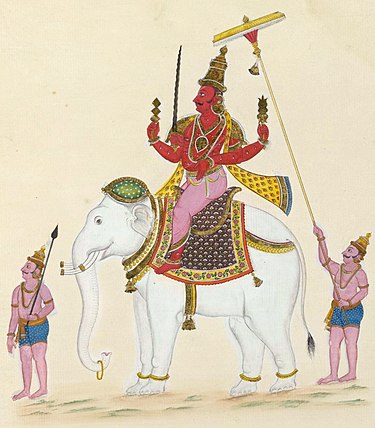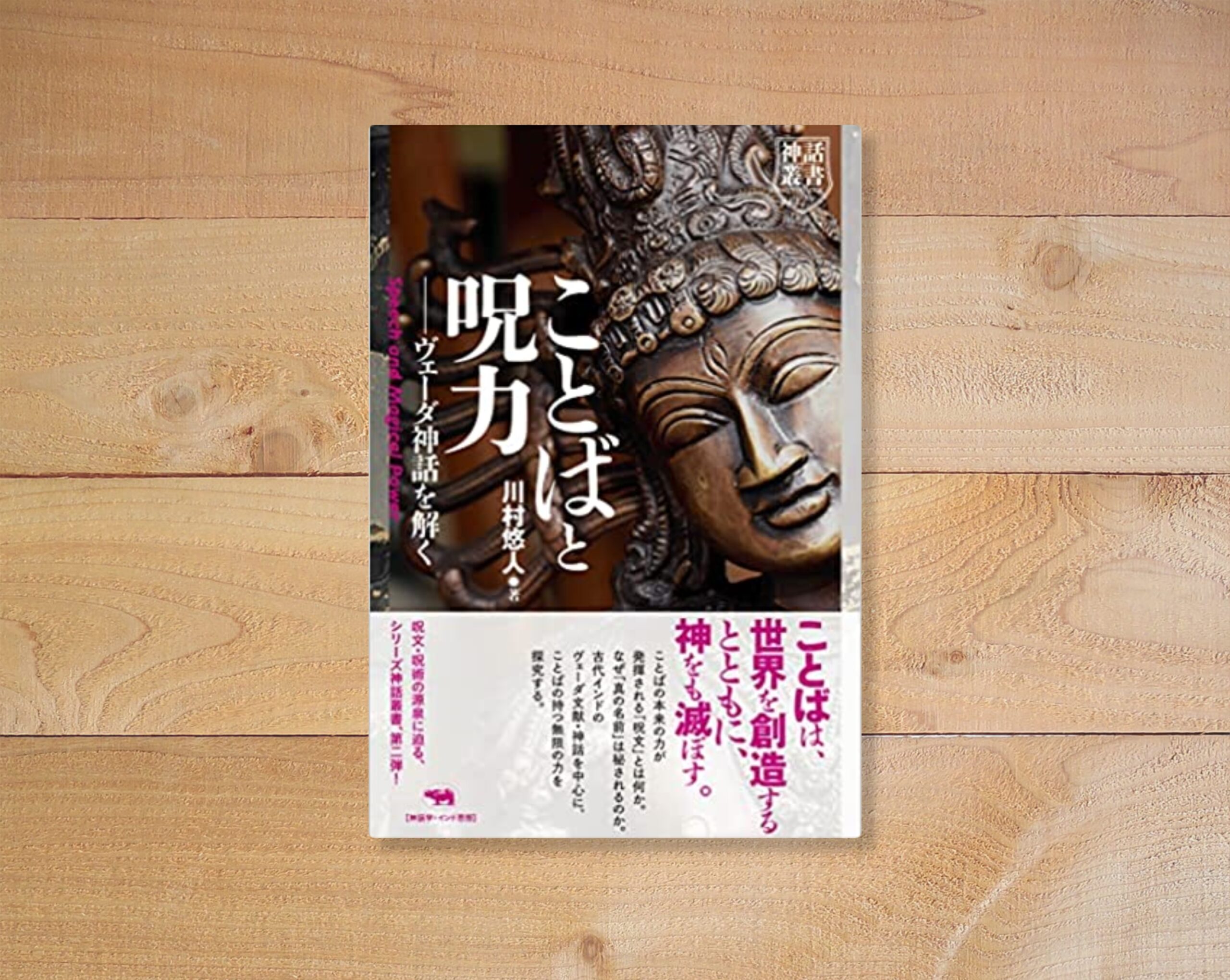Summary and Comments on Yuto Kawamura's "Words and Spell Power: Unraveling Vedic Mythology" - What is the power of "words" that are surprisingly familiar to us? Full of discoveries that are connected to our daily lives!
The book introduced here is "Words and Spell Power: Unraveling Vedic Mythology" by Yuto Kawamura, published by Shobunsha in 2022.
Let's take a quick look at the book.
[The Word creates the world and also destroys God.
AmazonProducts Page.
What is the "spell" that brings out the true power of words?
Why is the "true name" kept secret?
Focus on Vedic literature and mythology of ancient India,
Explore the infinite power of words.
The second book in the series, Mythology Series, which looks at the sources of spells and magic!
A story about casting spells and controlling fire to defeat enemy tribes and demons.
The story of a god shattering the walls of a cave by casting a spell with a group of sorcerers in tow.
It is a story about a god who begs us to give him a name, a name.
It is the story of a demon god who made an irreversible mistake by mistakenly saying the wrong word.
Vedic Literature" is an accumulation of knowledge for understanding the world.
In the Rig Veda, a collection of hymns to the gods, and the Vedic Ritual Book literature.
The following is a reading of a story about the power of words and curses in the "Kanji" culture.

This book is a work that considers the power of "words" based on the mythology of ancient India. The Vedas of ancient India may sound difficult, and you may be tempted to take a step back, but don't worry. The author has made every effort to make the book easy and enjoyable to read, even for those who know nothing about India. In the "Introduction," the author states the following.
This book is an attempt to introduce selected Vedic myths from ancient India in which the word ka or the name ka plays a certain role, and at the same time to give my own reflections on these myths. In the process, I will also carefully explain various elements surrounding Vedic myths that are not so familiar in Japan.
The intended audience for this book is not limited to specialists or researchers. Under the motto "Bringing Expertise to the Public," the book is written in as simple a language as possible. Please feel free to pick up a copy and read it. It may open a door to a world you have never seen or heard of. You may also find that the world beyond the door actually overlaps with our own world today.
The structure of this document is briefly described below.
In the introduction, first,Spells that demonstrate the power of wordsI will give an overview of what I mean by the word "ka", drawing examples from cultures in regions other than ancient India. Next, I will give an overview of the Vedic literature and Vedic mythology of ancient India, the subject of this book, and then give a brief description of how the word and the word-ka were understood in the Vedic culture of ancient India.
Chapters 1, 2, and 3 of this book then introduce and discuss the actual Vedic myths related to the Ka of the Word to help us understand how the power of the word manifests itself.
In Chapter 1, we will first look at myths that depict things coming to pass according to the content of words uttered by human beings. Then, in Chapter 2, we will look at myths that depict words physically striking or destroying some object. In Chapter 3, I will focus on "names" among the words, and after drawing various ideas about names, I will discuss myths in which the power of such names is the key. In the last chapter, I will summarize the language in contemporary society based on the introduction and discussion in this book.
Of course, the myths in this book are not all of the Vedic myths related to the power of words and names. If I have the opportunity in the future, I would be happy to cover other myths that I have not covered here. In addition, I am a researcher in the field of Indian classical studies, and in the hope that you can learn a little more about this field, I am writing down the results of my research, mainly in Japanese, to the extent that they are relevant to the story, as I feel like it. We hope that this will serve as a further reading guide for our readers.
Shobunsha, Yuto Kawamura, Words and Spell Power: Unraveling Vedic Mythology, p. 9-10.
Under the motto "Bringing Expertise to the Public," I write in as simple a language as possible."This book is very easy to read. As you may have already felt in the above text, the author's narration is very careful and easy to get into.
And what I found interesting about the book were the manga stories that appeared from time to time. It was especially interesting to read about ancient India in connection with "Bleach" from Weekly Shonen Jump. I also like the manga and thought, "Oh, that's what that was all about! That's what that was all about! I was excited to read it. He also gives us many other examples that are familiar to us, which makes ancient India, which I thought was a distant world, seem very familiar to me.
Words" we use in our daily lives without thinking.
In fact, we live with the power of those words without being aware of it.
Language is not just a tool for communicating information, but it is what it actually is, as something that is actually effective.
It is very interesting to know these things.
The word "okai ni shimasu," which is used at the end of a banquet, is a great example of this. What is the meaning of using the word "okai ni shimasu," which does not mean "to end" but means the exact opposite? This was also very interesting.
Finally, I would like to share with you some words from the author in the last chapter of the book. It is a bit long, but it is a very important recommendation, so I will read it carefully.
A slight wound rarely takes a person's life, but a trivial word spoken without any malice can take a person's life. A slight wound will heal itself after a short time, but a small word spoken without malice can cause a person to suffer for a very long time. If such a small word spoken casually has such power, it is inevitable that if it is uttered with a strong malicious intention to hurt the other person, it will cause a great deal of damage to the person. Moreover, if the words are uttered with such a strong intention, enhanced by an external or internal framework, they may exert a mighty power and cause phenomena beyond human understanding.
Once a word is uttered, it cannot be undone. Even if a celebrity or politician later retracts his or her words in desperation, the gaffe often brings his or her position down. In Vedic mythology, demi-gods who uttered incorrect words were destroyed. The more such a gaffe is made in a ritual setting, the more serious it is. In the case of gibberish written on social networking sites, there is usually a tendency to visually delete the string of words that indicate the gibberish and apologize, and the gibberish is somehow forgiven. This may be because it leaves the impression that the words have been visually undone. However, this is not the case with gibberish. In classical Sanskrit literature, a hermit's curse is often depicted, and although the hermit may add a period of time after the curse is uttered for the curse to remain in effect, the curse itself is basically never undone. Once a word is uttered, it can never be undone.
Jie MurazakiIn the short story collection "Yomei 3000 Kanji" (Shogakukan, 2000), a story named "Yomei 3000 Kanji," which is the title of the book, is included. It is the story of the main character who is told by his doctor that he has only 30000 characters left to live. I won't describe the story here, but what would we do if we were limited in the number of words we could write or speak in the rest of our lives? It may sound mundane, but I think we would try to use each word carefully.
What is important to each person is different. Some may try to convey their feelings to their parents, spouse, or children. Some may offer words to God or Buddha. Others, like Yukio Mishima, may make speeches to appeal to a large number of people to express their feelings. However, I doubt that many people would intentionally waste the limited amount of words they have to say in order to hurt a particular person, based on their temporary feelings on the spot. Just a little awareness of the need to use words with care may help society move in a better direction.
Although I have only mentioned the negative aspects of words, words have so much power, and depending on how they are used, they can bring good results to people. It is possible that a person who has been living in depression or in the depths of hell can be saved by a single word. There have been many cases where a word has led to a new life that is completely different from the one before.
Words carry so much weight, whether they bring good or bad results. Nowadays, irresponsible and thoughtless words seem to be all over the world. Perhaps this is an inevitable consequence of the Internet society, where words can be easily written and erased anonymously. With all due respect, I think it is time for us to remember once again the importance of using words. The Vedic myths that tell us how tremendous the power of words is seem to remind us of what we have almost forgotten.
Shobunsha, Yuto Kawamura, Words and Spell Power: Unraveling Vedic Mythology, p. 266-268.
Just a little awareness of the importance of language could move our society in a better direction."
It is time for us to remember once again the weight of our use of words. The series of Vedic myths that tell us how tremendously powerful words are seem to be a reminder of what we have almost forgotten."
I strongly agree with the author, Yuto Kawamura.
Words represent a person's self. Of course, as they say, "words, words, words," sometimes words themselves cannot be trusted. However, the words we use in our daily lives express who we are. I believe that words are something that comes from within a person.
I think this book is a wonderful opportunity to rethink language. It is also an enjoyable way to learn about the history and culture of ancient India, which we are not usually exposed to. I highly recommend this book. Why not pick up a copy?
The above is a summary of "Yuto Kawamura's "Words and Spell Power: Unraveling Vedic Mythology" - What is the power of "words" that is surprisingly familiar to us? Full of discoveries that are connected to our daily lives! The above is "Words and Spell Power: Unraveling Vedic Mythology.
Next Article.
Click here to read the previous article.
Related Articles





































